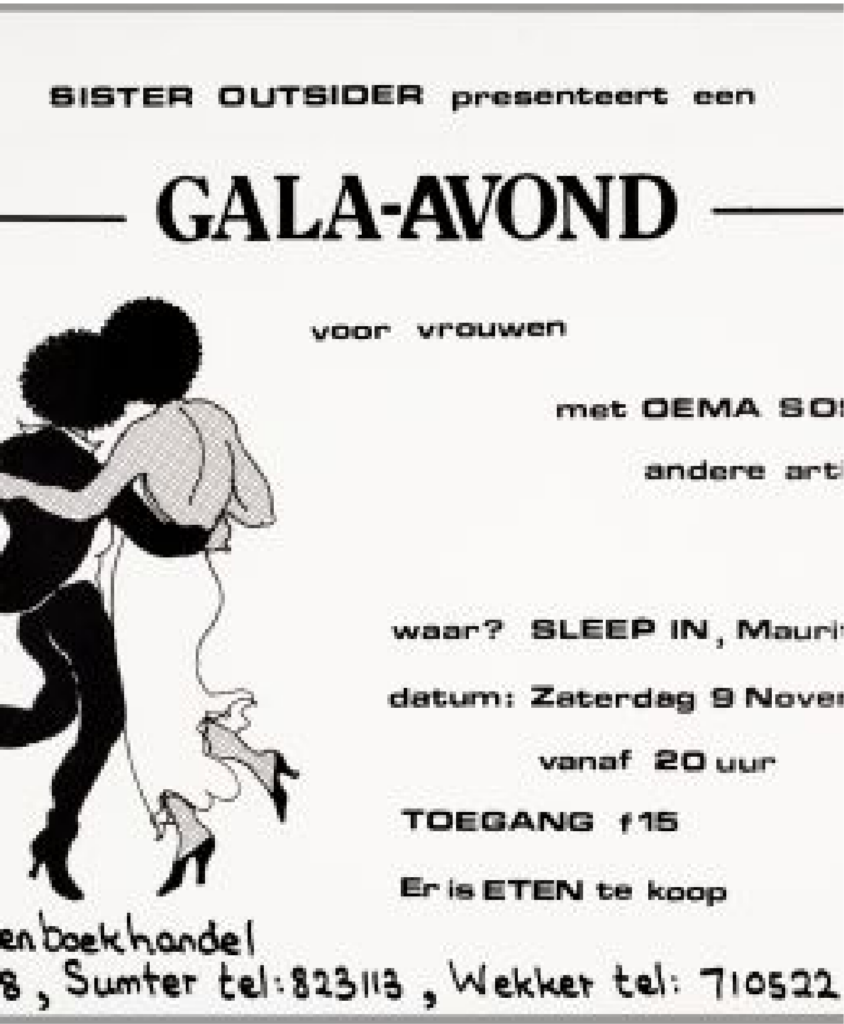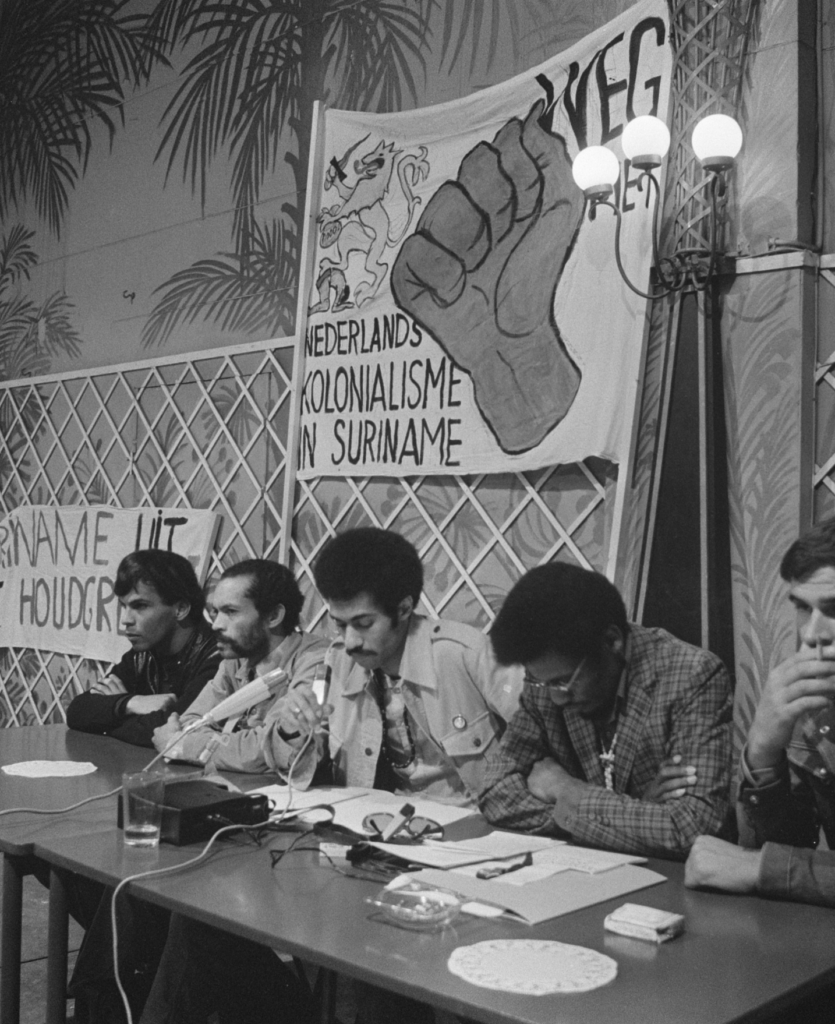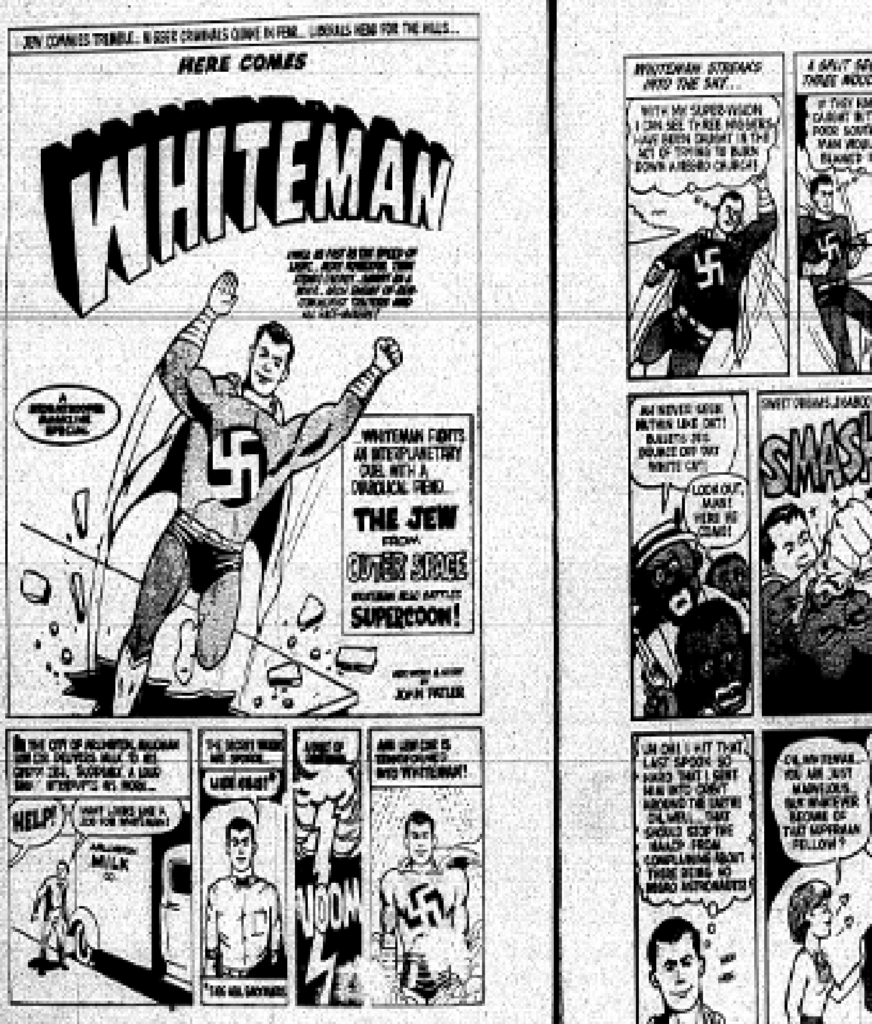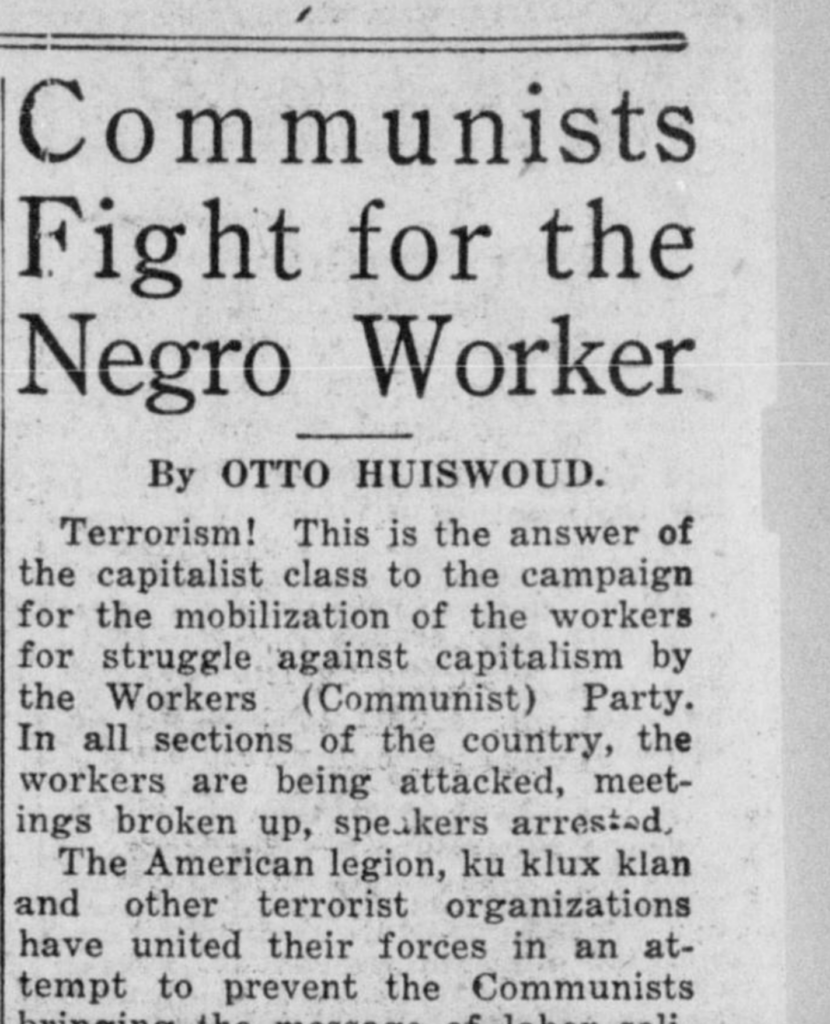Transatlantic Racial Protest
"A movement,
not a moment"
About this Collection
This collection will debunk the common notion that transatlantic aspects of racial protest movements on Black racial identity are ‘new’ in the 21st century, by showcasing various historical examples where these transatlantic aspects of Black activism were already profoundly apparent in previous periods and are thus interwoven in history.
1980s
Black Feminist activism
In the year 1983, the Afro-Dutch female protest group Sister Outsider was founded in Amsterdam. Its members, Tania Léon, Gloria Wekker, José Maas and Tieneke Sumter, were impressed and inspired by the life and activism of Afro-Caribbean American author Audre Lorde, a lesbian woman of color who advocated for the visibility of Black Feminism in the United States throughout her literary career.

Image © Atria: Kennisinstituut Voor Emancipatie En Vrouwengeschiedenis
1970s
Protests suriname independence
From 1970 onwards, Surinamese and Surinamese-Dutch organizations in the Netherlands increasingly raised a voice against Dutch imperialism and colonialism in Suriname, while also demanding an independent Suriname. The solidarity meetings and protests that resulted from this occurred at a time when Suriname was no longer an official colony of the Netherlands. However, the Netherlands still continued to economically exploit Suriname after 1954.

Image © Fotocollectie Anefo. B
1960s
American nazi party resistance
In opposition to these many examples of black activism and the fight for black rights there has also always been white resistance. White resistance is an umbrella term for white people pushing back in any way possible against black equality. Here are images of one of its notable examples: Nazism. The Nazi Party, founded in 1959, is an extremist form of white resistance, but when looking closely arguments can be found which are used to suppress and delegitimize the black struggle for equality today.

Image © The Right Wing Collection of the University of Iowa Libraries 1918-1977.
Late 1950s
Outrage U.S. Race relations
On October 28, 1958, two African American boys aged approximately seven and nine were violently arrested in Monroe, North Carolina for kissing a white girl on the cheek. They were not given a fair trial and sent to a reformatory. The so-called Kissing Case gained international attention and sparked transatlantic protest actions in reaction to how African Americans were treated in the United States.

Image © Jet Magazine 1959
1920s - 1950s
Anti-Colonial movement
Black activism can take many different forms and Otto Huiswoud embodies the changing nature of Black activism in the early twentieth century. In 1922, Otto Huiswoud was the only Black co-founder of the Communist Party, USA (CPUSA), and he was one of the first Black delegates to attend a Communist International (Comintern) congress that same year. Huiswoud became a prominent figure in the communist movement who helped address issues of racism and colonialism.

Image © Chronicling America: Historic American Newspapers.
